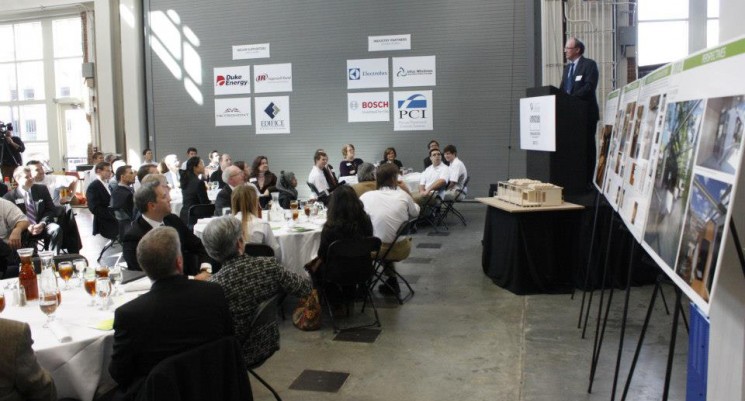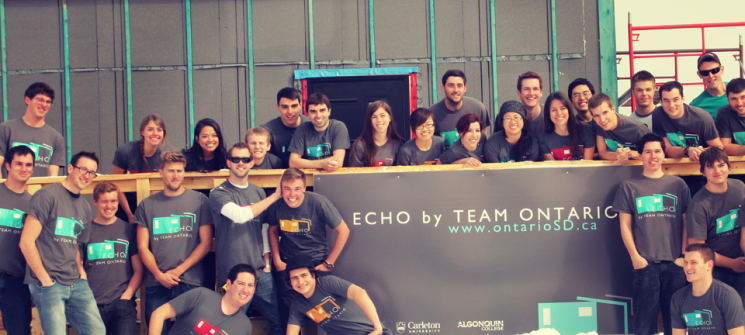Solar Decathlon 2013: Raising More Than Just Walls
Tuesday, September 10, 2013By Rebecca Matulka
Editor’s Note: This entry has been cross-posted from DOE’s Energy Blog.
For the teams competing in the U.S. Department of Energy Solar Decathlon, every cent counts. From researching design options and building supplies to transporting houses and communications materials, the costs of developing a competition house can add up. But before the teams even start on the building process, they must first master the art of fundraising.
To get them started, the Energy Department gives each team a $100,000 grant to meet competition deliverables—such as developing a project manual, creating a health and safety plan, and producing digital renderings of it house. Beyond that, the teams are responsible for fundraising the additional money needed to compete, which includes the costs of transporting the teams and their houses to the competition site. Although the team fundraising strategies are as different as their houses, one thing seems to be the same: involving students in the fundraising process is integral to success.
The University of North Carolina at Charlotte Goes Local

Key to the University of North Carolina at Charlotte’s fundraising success was involving the local community. To celebrate the groundbreaking of its house, the team invited its sponsors to the event. (Courtesy of the University of North Carolina at Charlotte)
The University of North Carolina at Charlotte took a local approach with UrbanEden by developing a solar-powered house for Charlotte’s rapidly growing urban center, and it applied the same locally oriented strategy to fundraising. Working with the university, North Carolina created a core communications team of students and an external steering committee of local leaders to help the team raise the funds for its house. The team targeted both multinational companies located in the metropolitan area and smaller groups in the local community, including university staff and faculty. The result: The team raised more than $1 million in the first six months of the competition—a success that it credits to creating a partnership with donors instead of asking for a handout.
Teamwork Leads to Team Ontario’s Success

To fund its Solar Decathlon house, Team Ontario took an “all hands on deck” approach rather than leave the daunting task of fundraising to a few team members. (Courtesy of Team Ontario)
For Team Ontario—a collaboration between Queen’s University, Carleton University, and Algonquin College—teamwork is key during every step of the competition. To fund ECHO, a house dedicated to the needs of the next generation of homeowners, the team took an “all hands on deck” approach rather than leave the daunting task of fundraising to a few team members. With more than 100 students to involve in the process, the team split into subteams that allowed them to play to their strengths. A business team focused on cash sponsorships, while technical teams worked to obtain in-kind sponsorship for ECHO’s materials and systems. As of August, Team Ontario had raised $850,000—no small feat for students with no prior fundraising experience.
Rebecca Matulka is a digital communications specialist in the Department of Energy’s Office of Public Affairs.
Tags: North Carolina, Solar Decathlon, Solar Decathlon 2013, Team Ontario, Teams
